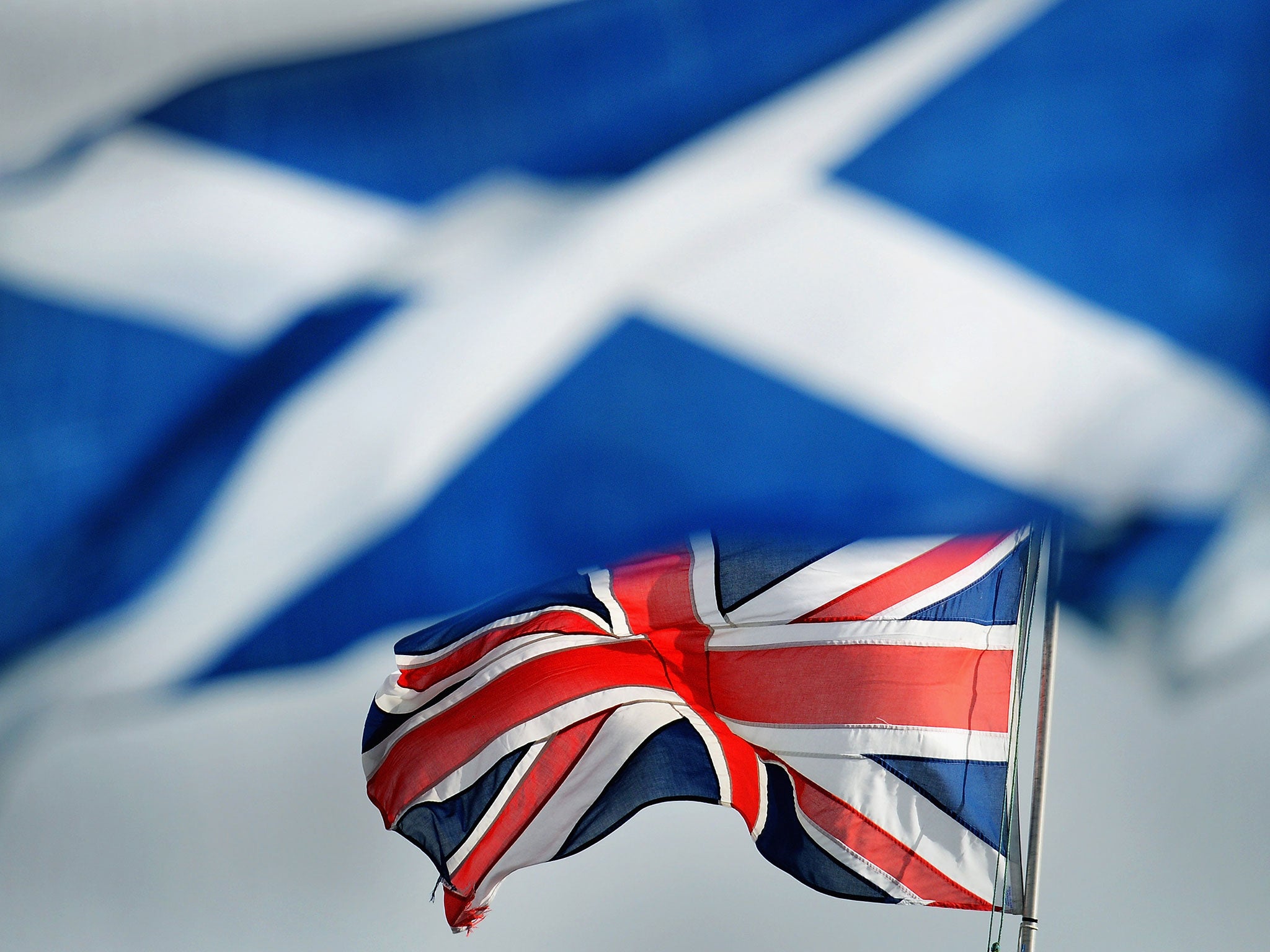Devo max explained: How the decision will affect our institutions
Six expert Independent writers explain what happens to the BBC, NHS, public spending, our energy, local government, and the UK in global terms

Your support helps us to tell the story
From reproductive rights to climate change to Big Tech, The Independent is on the ground when the story is developing. Whether it's investigating the financials of Elon Musk's pro-Trump PAC or producing our latest documentary, 'The A Word', which shines a light on the American women fighting for reproductive rights, we know how important it is to parse out the facts from the messaging.
At such a critical moment in US history, we need reporters on the ground. Your donation allows us to keep sending journalists to speak to both sides of the story.
The Independent is trusted by Americans across the entire political spectrum. And unlike many other quality news outlets, we choose not to lock Americans out of our reporting and analysis with paywalls. We believe quality journalism should be available to everyone, paid for by those who can afford it.
Your support makes all the difference.The BBC
In theory, the rejection of independence means business as usual for BBC Scotland. Yet the ferocity of protests outside the Pacific Quay headquarters in Glasgow, accusing the BBC of bias in its referendum coverage, may have shaken news chiefs. It is inevitable that the organisation will go through a period of examining its coverage of this historic period to decide whether it got it right. And no matter the outcome of such a review, the BBC’s marketing team has a considerable public relations task ahead in winning round a sizeable portion of the Scottish licence fee payers. That may mean BBC controllers commissioning more tartan programming, knowing the audience in the rest of the UK can hardly believe that what goes on in Scotland is irrelevant.
Ian Burrell
Media Editor
Energy
The prospect of Scotland pushing for a much greater share of its oil and gas revenues loomed firmly into view yesterday, after the referendum underlined just how dominant it is in the UK hydrocarbon industry.
UK oil and gas revenues are expected to be £3.7bn this year, meaning that any significant redistribution towards Scotland is likely to make a big difference to its inhabitants.
The impact on the rest of the UK’s finances will clearly be much smaller with any shortfall likely to be more than offset by an expected boost in North Sea production in the coming years following a decline in investment in the two years since the referendum was proposed.
Tom Bawden
Environment Editor
The NHS
The NHS came to the forefront of the debate but it was something of a red herring: Scotland already has independence on health. Fears about privatisation coming to Scotland were unfounded, because only the Scottish Government can increase the role of the private sector in the Scottish NHS.
There was more substance in the SNP’s warnings on funding. The No vote means Scotland’s health budget is still at the mercy of Westminster decisions, and documents leaked this week suggested the Scottish NHS has a £400m funding gap – it will need a major cost-saving programme. But the referendum has made clear to political leaders that the NHS is an issue that exercises voters’ passions.
Charlie Cooper
Health Correspondent
Public Spending
Alex Salmond promised that independence would allow Scotland to “improve pensions, build a fairer welfare system and continue to protect the NHS”. Has Scotland’s No vote sunk all that? Not entirely, because the party leaders all promised “extensive new powers” for the Scottish Parliament if Scots voted to remain part of the United Kingdom.
They also said that Barnett formula would remain sacrosanct and promised that the “final say” on health spending levels would rest with the Scottish parliament.
If Scotland wants to spend considerably more it will probably have to hike income tax rates north of the border to pay for it.
Ben Chu
Economics editor
The UK on the world stage
The dismemberment of the UK would undoubtedly have left Britain with a lesser global presence, with its position in international bodies, including the permanent membership of the UN security council, increasingly questioned.
The US and Nato will be pleased by the outcome of the vote after Alex Salmond’s pledge to evict the nuclear submarine fleet. But the failure of the nationalists would also be greeted with relief by a wide array of states from across the world troubled by their own separatist movements.
There will be worries, too, that the Government will now be too immersed in sweeping constitutional changes which need to be made, to focus on the range of crises facing us, from Isis and Ukraine to Ebola.
Kim Sengupta
Diplomatic Correspondent
Local Government
Increased devolution could result in welfare being meted out in a different way – local authorities will be able to set their own tax rates: if they set them low, there will be less money to spend. If not handled carefully, areas with the poorest residents could end up “squabbling” with each other for more resources from Westminster.
“Local authorities who are able to shout the loudest could be given the most money,” said Paul Hackett, director of the Smith Institute think tank.
More localised services could create different “access points” to benefits in different areas, unless a robust national agency takes on the task of overseeing local authorities’ welfare delivery plans.
Pavan Amara
Join our commenting forum
Join thought-provoking conversations, follow other Independent readers and see their replies
Comments